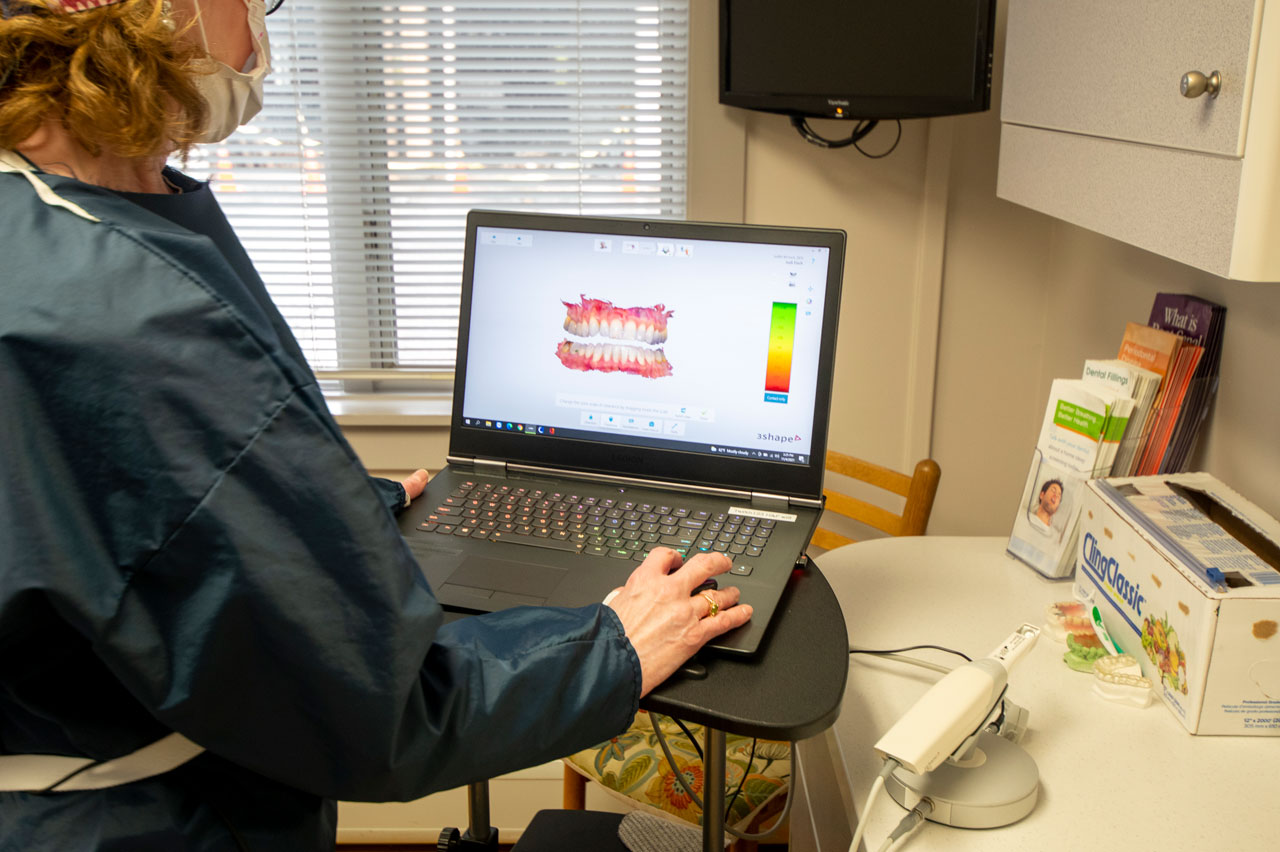Our Services > General Dentistry > Oral Hygiene
Oral Hygiene
Periodontal disease is an infection of the gums that may gradually destroy the bone that supports your natural teeth.
There are numerous disease entities requiring different treatment approaches. The bacteria in dental plaque is the primary cause of gum disease in genetically susceptible individuals. Daily brushing and flossing will prevent most periodontal conditions.
Why is oral hygiene so important?
Adults over 35 lose more teeth to gum diseases (periodontal disease) than from cavities. Three out of four adults are affected at some time in their life. The best way to prevent cavities and periodontal disease is with good homecare techniques, performed daily. We recommend using an electric toothbrush, floss, thin brushes to clean between your teeth and a mouthrinse to help decrease the bacteria in your mouth.
Periodontal disease and decay are both caused by bacteria in dental plaque. Plaque is a colorless film, which sticks to your teeth at the gum line. Plaque constantly forms on your teeth. If not carefully removed by daily brushing and flossing, plaque hardens into a rough, porous substance known as calculus (or tartar).
Everything in our body is an interconnected ecosystem, and developing gum disease can negatively affect the health of your entire body. Research has shown a strong correlation between periodontal disease and heart issues, diabetes and other health problems.
Other important factors affecting the health of your gums include:
- Smoking
- Diabetes
- Stress
- Clenching and grinding teeth
- Medication
- Poor nutrition

Keep Smiling With Proper Oral Hygiene
Oral hygiene, specifically brushing and flossing, are a vital part of your dental health. Review the topics below for more information regarding self-care for your overall health.
Periodontal Disease
Bacteria found in plaque produces toxins or poisons that irritate the gums, which may cause them to turn red, swell and bleed easily. If this irritation is prolonged, the gums separate from the teeth, causing pockets (spaces) to form. As periodontal diseases progress, the supporting gum tissue and bone that hold teeth in place begin to deteriorate. If left untreated, this leads to tooth loss.
Preventing Gum Disease
The best way to prevent gum disease is effective daily brushing, flossing & using mouthrinse as well as regular professional dental examinations and cleanings. Unfortunately, even with the most diligent dental home care, people can still develop some form of periodontal disease. Once this disease starts, professional intervention is necessary to prevent its progression.
Professional Cleaning
Daily brushing and flossing will keep dental tartar to a minimum, but a professional cleaning will remove tartar in places your toothbrush and floss have missed or cannot reach. Your recare visit to our office is an important part of your program to prevent gum disease. We will tailor your oral needs to a recare schedule that best suits the future of your oral health and to keep your teeth for your lifetime. We have patients that are on recare schedules from every two months to every twelve months. Not all patients are the same, therefore not all recare lengths are the same. We will suggest a recare length would be best for you.
Schedule Your Appointment
Call our office to learn more about our practice specialties and earliest available appointment dates.
Call us at (802) 775-5286 to schedule your appointment today!